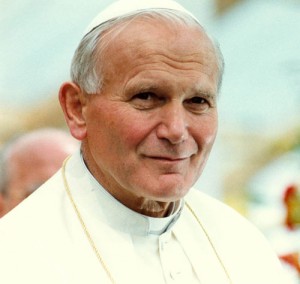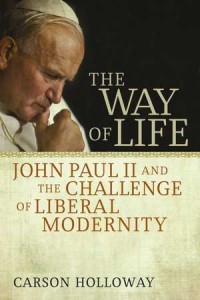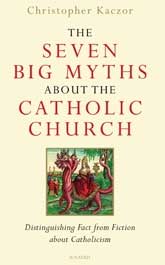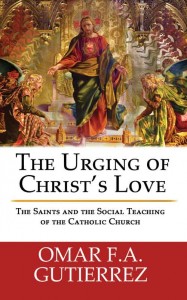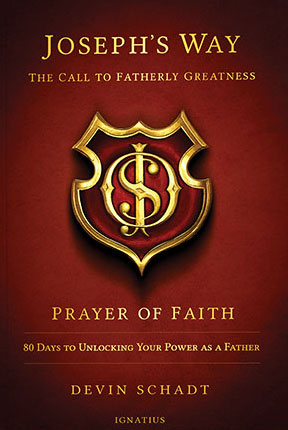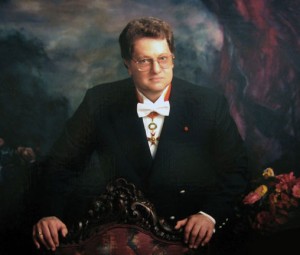 A very special “Inside the Pages” with Sir Gilbert Levine, who shares from his heart, this compelling tale of faith, friendship, and the healing power of music to bring people together. “The Pope’s Maestro” is an extraordinary and inspirational story of the unlikely friendship of  Sir Gilbert Levine and Pope John Paul II, who collaborated on symbolic acts of reconciliation: a series of internationally broadcast concerts designed to bring together people from all religious backgrounds under the auspices of the Vatican. Sir Gilbert  invites us all in to share in the special relationship bonded in music, prayer, and…love.
A very special “Inside the Pages” with Sir Gilbert Levine, who shares from his heart, this compelling tale of faith, friendship, and the healing power of music to bring people together. “The Pope’s Maestro” is an extraordinary and inspirational story of the unlikely friendship of  Sir Gilbert Levine and Pope John Paul II, who collaborated on symbolic acts of reconciliation: a series of internationally broadcast concerts designed to bring together people from all religious backgrounds under the auspices of the Vatican. Sir Gilbert  invites us all in to share in the special relationship bonded in music, prayer, and…love. 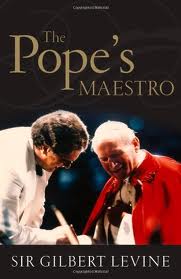 [powerpress] You can find more about this wonderful book here
[powerpress] You can find more about this wonderful book here
Tags: catholic, catholic podcast, catholic prayer, cathollc spirituality
This entry was posted on Wednesday, April 23rd, 2014 at 12:32 am
You can follow any responses to this entry through the RSS 2.0 feed.
WOL4 – Episode 4 –  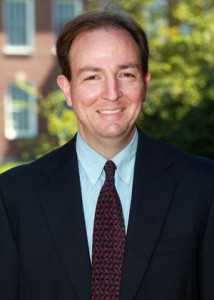 The Scottish Enlightenment…what was it and why was it such an important movement to understand.  The influence of David Hume - Scottish philosopher, historian, economist, and essayist.  The flaw in Hume’s philosophy –  that self-interest is  stronger than sympathy, and if morality, according to Hume’s thinking,  is derived from the passions, then ultimately self-interest is a greater worth and motivator than sympathy.  This conflicts with the Christian understanding of the “Golden Rule” and fuels the Culture of Death…those in need become very vulnerable in the culture.
The Scottish Enlightenment…what was it and why was it such an important movement to understand.  The influence of David Hume - Scottish philosopher, historian, economist, and essayist.  The flaw in Hume’s philosophy –  that self-interest is  stronger than sympathy, and if morality, according to Hume’s thinking,  is derived from the passions, then ultimately self-interest is a greater worth and motivator than sympathy.  This conflicts with the Christian understanding of the “Golden Rule” and fuels the Culture of Death…those in need become very vulnerable in the culture.
[powerpress]
The Way of Life, Carson Holloway examines the fundamental philosophers of modernity-from Hobbes to Toqueville-to suggest that John Paul II’s critique of modernity is intended not to reject, but to improve. Thus, claims Holloway, it is appropriate for liberal modernity to attend to the Pope’s thought, receiving it not as the attack of an enemy but as the criticism of a candid friend.
 Â
For other episodes in the series visit Dr. Holloway’s Discerning Hearts page
This series is based on Dr. Holloway’s book “The Way of Life”
Tags: Carson Holloway, David Hume, Scottish Enlightenment
This entry was posted on Monday, April 21st, 2014 at 6:00 am
You can follow any responses to this entry through the RSS 2.0 feed.
USCCA39  Chapter 30 - Marital Fidelity pt 2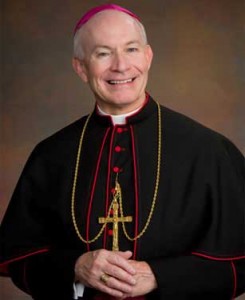
[powerpress]
Archbishop Lucas offers insights on the US Catholic Catechism for Adults Chapter 30:
THREATS TO MARRIAGE The Catechism lists the following behaviors as acts that undermine the purpose and dignity of marriage.
- Adultery is gravely sinful because it violates God’s call to a loving covenant of fidelity between a married man and woman. The act of adultery is an injustice to the wounded spouse. It weakens the institution of marriage and the stability of the family.
- Divorce is contrary to the natural law for it breaks the promise “to which the spouses freely consented to live with each other till death†(CCC, no. 2384). Jesus clearly taught that God’s original plan for marriage excluded divorce (cf. Mt 5:31-32, 9:3-9; Mk 10:9; Lk 16:18; 1 Cor 7:10-11). Marriage is an indissoluble union. Jesus removed the accommodations for divorce that had been tolerated under the Old Law.
- The couple may be allowed a separation in certain cases, such as when adultery is occurring or some type of abuse is present. A separation can be, at times, a prudent action to take. “If civil divorce remains the only possible way of ensuring certain legal rights, the care of the children, or the protection of inheritance, it can be tolerated and does not constitute a moral offense†(CCC, no. 2383). In such cases, a Catholic can still receive the Sacraments.
- Cohabitation (an unmarried couple living together) involves the serious sin of fornication. It does not conform to God’s plan for marriage and is always wrong and objectively sinful. Cohabitation does not guarantee successful married life, as has been revealed in the painful experience of many, and is detrimental to future commitment.
- Polygamy (having more than one spouse at a time) violates the understanding of the equal dignity that a man and woman bring to marriage and contradicts the unitive purpose of marriage.
- Attempts to justify same-sex unions or relationships or to give them matrimonial status also contradict God’s plan—as revealed from the beginning both in nature and in Revelation—for marriage to be a lifelong union of a man and a woman.
United States Conference of Catholic Bishops (USCCB) (2012-04-02). United States Catholic Catechism for Adults (Kindle Locations 5936-5951). United States Conference of Catholic Bishops (USCCB). Kindle Edition.
The Most Reverend George J. Lucas leads the Archdiocese of Omaha.Â
For other episodes in the visit our Archbishop George Lucas page
This programs is based on:
More information can be found here.
We wish to thank the USCCB for the permissions granted for use of  relevant material used in this series.
[ezcc]
Tags: Catholic Catechism, George Lucas, United States Catholic Catechism
This entry was posted on Thursday, April 17th, 2014 at 4:17 pm
You can follow any responses to this entry through the RSS 2.0 feed.
In”The Seven Big Myths about Marriage: What Science, Faith and Philosophy Teach Us about Love and Happiness”, Dr. Christopher Kaczor, 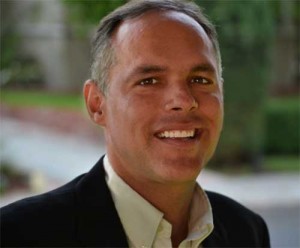 along with his wife Jennifer, shines an important light of truth on one of the most important issues of our day.  Beginning with basic foundational principals and understandings, Dr. Kaczor rationally examines key issues in the marriage debate and carefully, and quite thoroughly, debunks the leading “myths” about marriage.  An excellent resource and HIGHLY recommended for all who care about and engage in the discussions on marriage.
along with his wife Jennifer, shines an important light of truth on one of the most important issues of our day.  Beginning with basic foundational principals and understandings, Dr. Kaczor rationally examines key issues in the marriage debate and carefully, and quite thoroughly, debunks the leading “myths” about marriage.  An excellent resource and HIGHLY recommended for all who care about and engage in the discussions on marriage.
[powerpress]
You can find the book here
If I were a pastor, I would make this book required reading for engaged couples in all my marriage classes. —Peter Kreeft, Ph.D., Author, Jacob s Ladder: Ten Steps to Truth
The media portrayals of the public debates over marriage and its meaning often generate more heat than light. In this carefully crafted and accessible book, Professor Kaczor provides just the sort of illumination that is absent from those portrayals. I cannot think of a better book that offers such a clear and winsome account of marriage and its meaning, and what that tells us about human dignity and happiness. —Francis J. Beckwith, Professor of Philosophy, Baylor University
‘Don’t miss:
IP#182 Dr. Christopher Kaczor – The Seven Big Myths About the Catholic Church on Inside the Pages
and
“Life Issues” ….In Conversation with Dr. Christopher Kaczor
Tags: catholic, catholic podcast, catholic prayer
This entry was posted on Wednesday, April 16th, 2014 at 1:47 pm
You can follow any responses to this entry through the RSS 2.0 feed.
Episode 39- Regnum Novum: Bringing forth the New Evangelization through Catholic Social Teaching with Omar Gutierrez  – We continue the study of the “Compendium of the Social Doctrine of the Church” Â Chapter 12 “Social Doctrine and Ecclesial Action”
– We continue the study of the “Compendium of the Social Doctrine of the Church” Â Chapter 12 “Social Doctrine and Ecclesial Action”
[powerpress]
CHAPTER TWELVE
SOCIAL DOCTRINE AND ECCLESIAL ACTION
I. PASTORAL ACTION IN THE SOCIAL FIELD
a. Social doctrine and the inculturation of faith
b. Social doctrine and social pastoral activity
c. Social doctrine and formation
d. Promoting dialogue
e. The subjects of social pastoral activity
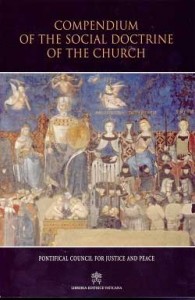
We live at a very special time. The confluence of many things has brought forth the clear need to be able to articulate the Social Teaching of the Catholic Church in a way that is accessible and applicable. This is not to be an effort where high-minded theories are to be bandied about. Rather, this is a time of opportunity wherein we can apply the Social Doctrine to the concrete so as to bring about a New Kingdom, a Revolution. – Omar G.
Also visit Omar’s “Discerning Hearts” page Catholic Social Teaching 101
You can find Omar Gutierrez’s book here
In The Urging of Christ’s Love Omar Gutiérrez tells the stories of eleven people who lived their lives in pursuit of Christ Jesus. Each Saint, Blessed or Servant of God is considered in the context of Catholic Social Teaching. Then at the end of each chapter a prayer is offered and quotes from the Compendium of the Social Doctrine of the Church are provided in order to link the lessons we can learn from the saint’s life to Church teaching. By discovering some new saint friends, and rediscovering some old ones, The Urging of Christ’s Love presents Catholic Social Teaching in an accessible and important way.
Tags: catholic, catholic podcast, catholic prayer
This entry was posted on Monday, April 14th, 2014 at 3:45 pm
You can follow any responses to this entry through the RSS 2.0 feed.
WOL3 – Episode 3 -The influence of Thomas Hobbes and his role as the father of modern-day liberalism.   Absolute monarchy and the tyranny of “unlimited” government.  The difference between Divine-right monarchy and Absolute monarchy, and the legitimacy thought behind “dictatorship”.  How this affects ruling systems in history, and it’s influence on the “Culture of Death”.  Who was John Locke?  The Law of Nature and it’s obligations according to Locke’s thought.  The fundamental rule to preserve oneself.  Bl. John Paul’s response to that thought…to respect the moral law and give of oneself.
Absolute monarchy and the tyranny of “unlimited” government.  The difference between Divine-right monarchy and Absolute monarchy, and the legitimacy thought behind “dictatorship”.  How this affects ruling systems in history, and it’s influence on the “Culture of Death”.  Who was John Locke?  The Law of Nature and it’s obligations according to Locke’s thought.  The fundamental rule to preserve oneself.  Bl. John Paul’s response to that thought…to respect the moral law and give of oneself.
[powerpress]
The Way of Life, Carson Holloway examines the fundamental philosophers of modernity-from Hobbes to Toqueville-to suggest that John Paul II’s critique of modernity is intended not to reject, but to improve. Thus, claims Holloway, it is appropriate for liberal modernity to attend to the Pope’s thought, receiving it not as the attack of an enemy but as the criticism of a candid friend.
 Â
For other episodes in the series visit Dr. Holloway’s Discerning Hearts page
This series is based on Dr. Holloway’s book “The Way of Life”
Tags: catholic, catholic podcast, catholic prayer
This entry was posted on Thursday, April 10th, 2014 at 1:43 pm
You can follow any responses to this entry through the RSS 2.0 feed.
USCCA38 Â Chapter 30 -Â Marital Fidelity pt 1
[powerpress]
Archbishop Lucas offers insights on the US Catholic Catechism for Adults Chapter 30:
The Catechism states that sexuality involves the whole person. “Sexuality affects all aspects of the human person in the unity of his body and soul. It especially concerns affectivity, the capacity to love and to procreate, and in a more general way the aptitude for forming bonds of communion with others†(CCC, no. 2332).
The Sixth Commandment summons spouses to practice permanent and exclusive fidelity to one another. Emotional and sexual fidelity are essential to the commitment made in the marriage covenant. God established marriage as a reflection of his fidelity to us. The vows made by the spouses at their wedding to be faithful to one another forever should witness the very covenant God has made with us.
United States Conference of Catholic Bishops (USCCB) (2012-04-02). United States Catholic Catechism for Adults (Kindle Locations 5856-5861). United States Conference of Catholic Bishops (USCCB). Kindle Edition.
The Most Reverend George J. Lucas leads the Archdiocese of Omaha.Â
For other episodes in the visit our Archbishop George Lucas page
This programs is based on:
More information can be found here.
We wish to thank the USCCB for the permissions granted for use of  relevant material used in this series.
[ezcc]
Tags: Catechism, Catholic Catechism, George Lucas
This entry was posted on Wednesday, April 9th, 2014 at 3:22 pm
You can follow any responses to this entry through the RSS 2.0 feed.
What a delight to talk with Simcha Fisher! She is one of the most intriguing, engaging, and truly authentic Catholic writers out there today.  Her blogging for the National  Catholic Register is a stand out for their online features, and her Patheos blog “I Have to Sit Down” is one of my all-time favorites  (I highly encourage bookmarking it).  It’s a joy to be able to heartily recommend “The Sinner’s Guide to Natural Family Planning“!  Far from being just a critical examination of the topic, this book reads more like a conversation with a good friend at a coffee house.  All issues on are the table and thoughtfully discussed.  Wherever you find yourself on the subject, respect and encouragement is the order of the day.  Challenges are acknowledged and addressed by Simcha, who delivers time tested wisdom that is only garnered from a lived faith and years of experience.  Everyone should be reading this book, not just young married couples, but also priest, deacons, religious, and couples engaged in the conversations that shape our culture today.
Catholic Register is a stand out for their online features, and her Patheos blog “I Have to Sit Down” is one of my all-time favorites  (I highly encourage bookmarking it).  It’s a joy to be able to heartily recommend “The Sinner’s Guide to Natural Family Planning“!  Far from being just a critical examination of the topic, this book reads more like a conversation with a good friend at a coffee house.  All issues on are the table and thoughtfully discussed.  Wherever you find yourself on the subject, respect and encouragement is the order of the day.  Challenges are acknowledged and addressed by Simcha, who delivers time tested wisdom that is only garnered from a lived faith and years of experience.  Everyone should be reading this book, not just young married couples, but also priest, deacons, religious, and couples engaged in the conversations that shape our culture today.
[powerpress]
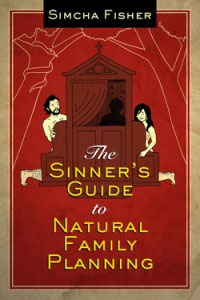 You can find the book here
You can find the book here
Simcha speaks … with honesty along with the wit and wisdom that always make her teachings so memorable and helpful. She summons all of us to trust, mutual patience and kindness, and to a joyful honesty about NFP. —Msgr. Charles Pope, Pastor of Holy Comforter – St. Cyprian Parish, Washington, DC
Before The Sinner s Guide to NFP, the only way you could get this kind of candor on the subject of Natural Family Planning was in private conversations with your best friend. Simcha has taken all the things we think about NFP but feel like we can t say, brought them into the light, and addressed them with insight and razor-sharp wit. You ll laugh, you ll nod your head in recognition, and you ll ultimately walk away inspired by the kind of encouragement that only someone else in the trenches can offer. —Jennifer Fulwiler of Conversion Diary
Tags: catholic, catholic podcast, catholic prayer
This entry was posted on Tuesday, April 8th, 2014 at 1:37 pm
You can follow any responses to this entry through the RSS 2.0 feed.
 Devin Schadt  offers  a tremendous work proclaiming St. Joseph as a model for the authentic expression of manhood and fatherhood.  In “ Joseph’s Way: The Call to Fatherly Greatness: Part I: Prayer of Faith”, he shares his compelling personal witness to the great saint’s role in his life.  He also uses  Scripture, the Catechism of the Catholic Church, and many other outstanding resources, to fashion a study that helps to deepen the faith of those who walk with good St. Joseph through the perils men, as well as their families, face in our world today.
Devin Schadt  offers  a tremendous work proclaiming St. Joseph as a model for the authentic expression of manhood and fatherhood.  In “ Joseph’s Way: The Call to Fatherly Greatness: Part I: Prayer of Faith”, he shares his compelling personal witness to the great saint’s role in his life.  He also uses  Scripture, the Catechism of the Catholic Church, and many other outstanding resources, to fashion a study that helps to deepen the faith of those who walk with good St. Joseph through the perils men, as well as their families, face in our world today.
[powerpress]
You can find the book here
From the book description:
Among the most serious crises facing our nation and the world is the crisis of fatherhood. Indeed, if the world is to be converted, the Church must be renewed. If the macro-Church is to be renewed, the micro church of the family must be restored. And if the family is to be restored and re-vitalized, the man who is both husband and father must become who God has created him to be – a father on earth like the Father in heaven. Joseph’s Way: The Call to Fatherly Greatness, Part I: Prayer of Faith is the first in a four book series that comprises an in-depth vision of the human father as seen through the lens of St. Joseph and the patriarchs. By comparing Abraham the ‘Father in Faith’, with St. Joseph the just father who lived by faith fathers will discover the power of their vocation and their essential role in rebuilding society. Joseph’s Way: The Call to Fatherly Greatness, Part I: Prayer of Faith helps men become great fathers by re-discovering the hidden greatness of fatherhood.
Tags: catholic, catholic podcast, catholic prayer
This entry was posted on Wednesday, March 26th, 2014 at 12:09 am
You can follow any responses to this entry through the RSS 2.0 feed.
WOL2 – Episode 2 – What is “Evangelium Vitae (The Gospel of Life)”?  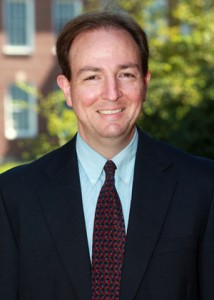 What does this have to do with Liberal Modernity?  What is wrong with public culture we now have?  What is the Culture of Death?  Are there defects that go at the deepest foundational levels of our culture that have led to this behavior?  Human dignity has to be recognized on all levels.  Who was Thomas Hobbes, English philosopher and proponent of absolute government?  His life and times? And what are the damaging effects  of his thought on the value of the human person?  What would be Bl. John Paul’s response?
What does this have to do with Liberal Modernity?  What is wrong with public culture we now have?  What is the Culture of Death?  Are there defects that go at the deepest foundational levels of our culture that have led to this behavior?  Human dignity has to be recognized on all levels.  Who was Thomas Hobbes, English philosopher and proponent of absolute government?  His life and times? And what are the damaging effects  of his thought on the value of the human person?  What would be Bl. John Paul’s response?
[powerpress]
The Way of Life, Carson Holloway examines the fundamental philosophers of modernity-from Hobbes to Toqueville-to suggest that John Paul II’s critique of modernity is intended not to reject, but to improve. Thus, claims Holloway, it is appropriate for liberal modernity to attend to the Pope’s thought, receiving it not as the attack of an enemy but as the criticism of a candid friend.
For other episodes in the series visit Dr. Holloway’s Discerning Hearts page
 Â
This series is based on Dr. Holloway’s book “The Way of Life”
Tags: catholic, catholic podcast, catholic prayer
This entry was posted on Friday, March 21st, 2014 at 12:30 am
You can follow any responses to this entry through the RSS 2.0 feed.
Episode 36- Regnum Novum: Bringing forth the New Evangelization through Catholic Social Teaching with Omar Gutierrez –  We continue the study of the “Compendium of the Social Doctrine of the Church” Â Chapter 9 “The International Community”
We continue the study of the “Compendium of the Social Doctrine of the Church” Â Chapter 9 “The International Community”
[powerpress]
CHAPTER NINE
THE INTERNATIONAL COMMUNITY
I. BIBLICAL ASPECTS
a. Unity of the human family
b. Jesus Christ, prototype and foundation of the new humanity
c. The universal vocation of Christianity
II. THE FUNDAMENTAL RULES OF THE INTERNATIONAL COMMUNITY
a. The international community and values b. Relations based on harmony between the juridical and moral orders
b. Relations based on harmony between the juridical and moral orders
III. THE ORGANIZATION OF THE INTERNATIONAL COMMUNITY
a. The value of international organizations
b. The juridical personality of the Holy See
IV. INTERNATIONAL COOPERATION FOR DEVELOPMENT
a. Cooperation to guarantee the right to development
b. The fight against poverty
c. Foreign debt
We live at a very special time. The confluence of many things has brought forth the clear need to be able to articulate the Social Teaching of the Catholic Church in a way that is accessible and applicable. This is not to be an effort where high-minded theories are to be bandied about. Rather, this is a time of opportunity wherein we can apply the Social Doctrine to the concrete so as to bring about a New Kingdom, a Revolution. – Omar G.
Also visit Omar’s “Discerning Hearts” page Catholic Social Teaching 101
You can find Omar Gutierrez’s book here
In The Urging of Christ’s Love Omar Gutiérrez tells the stories of eleven people who lived their lives in pursuit of Christ Jesus. Each Saint, Blessed or Servant of God is considered in the context of Catholic Social Teaching. Then at the end of each chapter a prayer is offered and quotes from the Compendium of the Social Doctrine of the Church are provided in order to link the lessons we can learn from the saint’s life to Church teaching. By discovering some new saint friends, and rediscovering some old ones, The Urging of Christ’s Love presents Catholic Social Teaching in an accessible and important way.
Tags: catholic, catholic podcast, catholic prayer
This entry was posted on Monday, March 17th, 2014 at 10:01 am
You can follow any responses to this entry through the RSS 2.0 feed.
“We must find a way to discuss the human future intellectually. Â The universal moral law written on the human heart is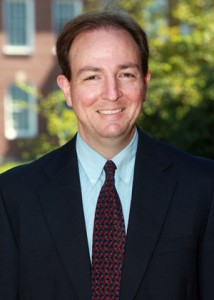 precisely that kind of grammar which is needed if the world is to engage in this discussion of it’s future” Â Bl. Pope John Paull II
precisely that kind of grammar which is needed if the world is to engage in this discussion of it’s future” Â Bl. Pope John Paull II
[powerpress]
WOL1 – Episode 1 – What is “liberal modernity”?  Maybe not so modern?  The revolution in political philosophy…like the thought of  Thomas Hobbes, John Locke…what is “good” and what are the problems.  Why is it important to discern between “self-interest” and the dignity of each human person?  Why is Bl. John Paul’s thought relevant to Western Liberalism?  What is the “Culture of Death” and the climate of moral confusion?  The moral law is the path to life.
The Way of Life, Carson Holloway examines the fundamental philosophers of modernity-from Hobbes to Toqueville-to suggest that John Paul II’s critique of modernity is intended not to reject, but to improve. Thus, claims Holloway, it is appropriate for liberal modernity to attend to the Pope’s thought, receiving it not as the attack of an enemy but as the criticism of a candid friend.
 Â
This series is based on Dr. Holloway’s book “The Way of Life”
Tags: catholic, catholic podcast, catholic prayer
This entry was posted on Wednesday, March 5th, 2014 at 8:22 am
You can follow any responses to this entry through the RSS 2.0 feed.
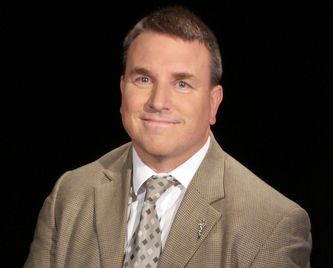 Episode 21 – Great Works in Western Literature with Joseph Pearce – T.S. Eliot and “The Waste Land”
Episode 21 – Great Works in Western Literature with Joseph Pearce – T.S. Eliot and “The Waste Land”
(Of special note: excerpts from “The Waste Land” are read by T. S. Eliot)
[powerpress]
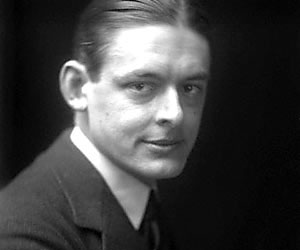 “Eliot’s place as a poet of the highest stature is assured. The Waste Land is the quintessential debunking of modernity and is also, simultaneously, a potent antidote to the poison of postmodernism..”
“Eliot’s place as a poet of the highest stature is assured. The Waste Land is the quintessential debunking of modernity and is also, simultaneously, a potent antidote to the poison of postmodernism..”
–Joseph Pearce -from Nov. 22, 2010 St. Austin Review —
You can find the complete poem here
An excerpt from “The Waste Land” by T. S. Eliot
If there were water
And no rock
If there were rock
And also water
And water
A spring
A pool among the rock
If there were the sound of water only
Not the cicada
And dry grass singing
But sound of water over a rock
Where the hermit-thrush sings in the pine trees
Drip drop drip drop drop drop drop
But there is no waterWho is the third who walks always beside you?
When I count, there are only you and I together
But when I look ahead up the white road
There is always another one walking beside you
Gliding wrapt in a brown mantle, hooded
I do not know whether a man or a woman
—But who is that on the other side of you?
Joseph Pearce is currently the Writer-in-Residence and Visiting Fellow at Thomas More College of Liberal Arts in Merrimack, New Hampshire. He is also Visiting Scholar at Mount Royal Academy in Sunapee, New Hampshire. He is also Visiting Scholar at Mount Royal Academy in Sunapee, New Hampshire. He is co-editor of the Saint Austin Review (or StAR), an international review of Christian culture, literature, and ideas published in England (Family Publications) and the United States (Sapientia Press). He is also the author of many books, including literary biographies of Solzhenitsyn, J. R. R. Tolkien, C. S. Lewis, G. K. Chesterton, and Oscar Wilde.
Tags: joseph pearce, Western Literature
This entry was posted on Tuesday, February 25th, 2014 at 1:59 pm
You can follow any responses to this entry through the RSS 2.0 feed.
From Omar F. A. Gutierrez (found on his blog)
I cannot tell you how many times I have heard this complaint from well-meaning Catholics: “We have a 40 Days for Life and a March for Life and a Novena for Life, but why don’t the bishops get behind a 40 Days for Poverty or a March to End Poverty campaign? Why can’t the bishops give equal time to all the other life issues?†Here’s what I usually say:
1) I think it is important to agree that poverty is a life issue. Likewise, it is important to agree that addressing poverty and its many causes is part of our responsibility as Catholics. So saying things like, “Helping the poor is the business of local churches and charities and is not the work of the government†is nonsense and actually counters Catholic Social Teaching. The government does and must have a role if for no other reason than to reinforce the notion that alleviating the affects of poverty is a communal responsibility. The level of governmental involvement is debatable, but that it should be involved really isn’t.
2) But then it needs to be pointed out to the well-meaning Catholic that there is no single legislative embodiment of the perpetuation of poverty. There is no one law that exists in our land which states, “poverty is a good thing,†or “we want poor people,†or “being poor is a Constitutional necessity.†There is, however, a singular decision that has enshrined abortion on demand, a singular legal decision which has created a structure around abortion that is one of the most permissive in the entire world, a singular argument that is so legally unsound that even supporters of abortion think it is bad law. That law is Roe v. Wade, and it needs to be overturned.
Saying that poverty needs to be overturned might be a nice sound bite, but it is meaningless. There is no single legal strategy that will ever eradicate poverty, indeed, Our Lord tells us that poverty will always exist. I know many who cringe at the mention of this fact, but it is a fact, and it means only what it means. We will always have the poor with us.
3)  To this many respond, “Well, we’ll always have abortion too.†Yes, that’s right, which is why the strategic goal of the U.S. Bishops is not to thwart abortions for all time. Thanks to sin, abortion will always be with us. Therefore, our goal is not to undue sin but rather to overturn legalized abortion. The goal is always to finally put an end to the legal structure that allows one class of persons to snuff out the life of another class of persons. Put otherwise, our goal is to make abortion illegal not impossible. There is no way to make it impossible, and making poverty illegal is nonsensical.
4)  There is another crucial difference. We have all this public pro-life work because there are still so many Americans and even many Catholics who are convinced that abortion is okay. Though there are some who callously dismiss the plight of the poor as a punishment for their own laziness, it is nevertheless the case that expressing this opinion is roundly condemned by our culture. Everyone knows, even if they dare to think it, that blaming the poor for their poverty is asinine. It’s considered “edgy†to say so when it is said. And no one runs on a platform that says, “let the poor stay poor.†Democrats accuse Republicans of just that, but they have to infer that’s the case because no one would dare say it publicly. That’s the difference.
When was the last time you saw reps for “Catholics for Poverty†on TV?
We do have Catholics, on the other hand, who think that abortion is alright. There are even Catholic University professors who teach that abortion can be a moral act. Heck, we have an entire political party dedicated not just to keeping abortion legal but to making sure it’s free for whoever wants one, along with Catholics who vote for candidates who publicly say “abortion is a Constitutional right†and “I don’t want my daughters punished with a child.â€
5) Also, by defending the rights of the unborn, the bishops actually are advocating for the poor. The effort to help the poor will always fail so long as Americans continue to think that the life of the unborn child is expendable. The popes have said repeatedly, in all sorts of different ways, that a legal structure and a culture that rejects the life of the unborn innocent cannot hope to achieve a social justice that will honestly address the needs of the poor. The rights to labor, a just wage, education, health care, family and the rest are all “false and illusory,†to quote John Paul the Great, if the right to life is not defended to the maximum.
6) The truth is that the bishops’ do advocate for the poor, here and abroad. On state levels and at the national, they do advocate for those policy decisions that help the poor. Now, I don’t always agree with them on what helps the poor and what doesn’t, but they are far from silent about it. We could probably be reminded more often about our own responsibilities. No doubt there are a few prelates here or there who could take a cue from Pope Francis and give up the “trappings†of the ecclesial machine. Certainly, Catholics with means (even myself – as meager as my means are) could be more generous with our donations to fund poverty relief, especially those which address the root causes of poverty and build up family life.
But while all that may be true, abortion is singularly odious because of the laws that protect it and because of a culture that defends it. God bless all those who work for life . We need more of them, and we need more Catholics who love the poor to get behind the pro-life movement and to stop supporting candidates who perpetuate this genocide.
Omar F. A. Guiterrez, M.A. , Special Assistant  to Archbishop George Lucas of the Archdiocese of Omaha.  He’s also the author of “The Urging of Christ’s Love:  The Saints and The Social Teaching of the Catholic”
Tags: catholics
This entry was posted on Tuesday, February 18th, 2014 at 6:08 pm
You can follow any responses to this entry through the RSS 2.0 feed.
As part of the Healthy Living Series, Deacon James Keating discusses Marriage, God, and Spousal Prayer. Â Very powerful.
[powerpress]
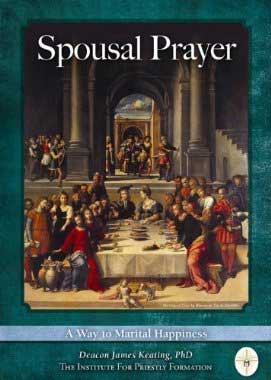 You can find the book here
You can find the book here
From the description:
Deacon James Keating’s newest book, Spousal Prayer: A Way to Marital Happiness affirms that the sharing of hearts is a necessary commitment in both marriage and prayer. If we can learn what the key elements to sharing the heart are and equally what the key elements to receiving the heart of another are, then we will know the greatest of intimacy in both prayer and marriage. The mingling of the love of spouse with and in the love of God is and has always been the foundation for a life of peace, creativity, and vibrancy, not to mention sanctity. In fact, we cannot even understand what marriage is unless we look at how Christ loved His Bride, the Church, till the end (Jn 13:1). For the baptized, Christ has joined His love for the Church to the Sacrament of Marriage and Marriage, to His love for the Church. Each couple is called to allow Jesus to bring them into this great love of His. The couple is not supposed to do all the work of love; they are called to let Jesus gift them with His own spousal love. In other words, couples should let Jesus live His spousal love for the Church over again in their own love for one another. They do this by simply asking Him in prayer to do so and by sharing their needs and desires with Him. Marriage is not a self-help relationship; it is a deep partnership with Christ.
Tags: Deacon James Keating, james keating, marriage
This entry was posted on Sunday, January 26th, 2014 at 12:54 am
You can follow any responses to this entry through the RSS 2.0 feed.

